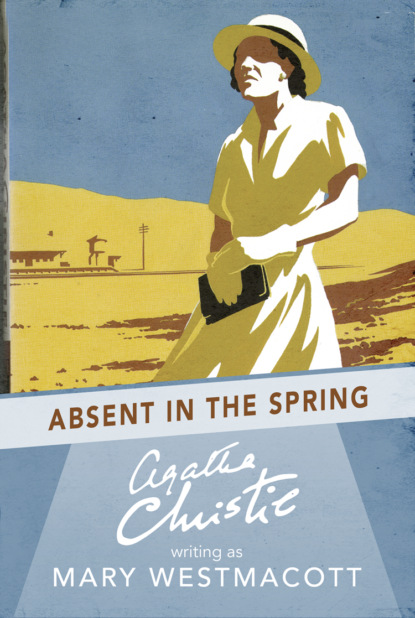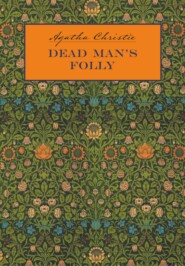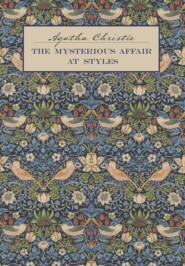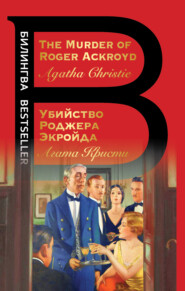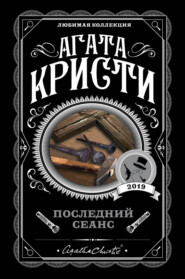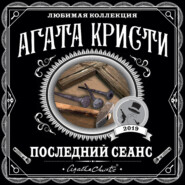По всем вопросам обращайтесь на: info@litportal.ru
(©) 2003-2024.
✖
Absent in the Spring
Автор
Год написания книги
2019
Настройки чтения
Размер шрифта
Высота строк
Поля
Joan laughed too, relieved at the lighter tone the conversation had taken.
‘Don’t be ridiculous. I’ve been very lucky, I know.’
And then, afraid that that last remark had been tactless when confronted by the ruin and bad luck that had been Blanche’s lot in life, she added hurriedly:
‘I really must go up now. Good night—and it’s been marvellous seeing you again.’
She squeezed Blanche’s hand warmly (would Blanche expect her to kiss her? Surely not.) and ran lightly up the stairs to her bedroom.
Poor Blanche, thought Joan as she undressed, neatly laying and folding her clothes, putting out a fresh pair of stockings for the morning. Poor Blanche. It’s really too tragic.
She slipped into her pyjamas and started to brush her hair.
Poor Blanche. Looking so awful and so coarse.
She was ready for bed now, but paused irresolutely before getting in.
One didn’t, of course, say one’s prayers every night. In fact it was quite a long time since Joan had said a prayer of any kind. And she didn’t even go to church very often.
But one did, of course, believe.
And she had a sudden odd desire to kneel down now by the side of this rather uncomfortable looking bed (such nasty cotton sheets, thank goodness she had got her own soft pillow with her) and well—say them properly—like a child.
The thought made her feel rather shy and uncomfortable.
She got quickly into bed and pulled up the covers. She picked up the book that she had laid on the little table by the bed head, The Memoirs of Lady Catherine Dysart—really most entertainingly written—a very witty account of mid-Victorian times.
She read a line or two but found she could not concentrate.
I’m too tired, she thought.
She laid down the book and switched off the light.
Again the thought of prayer came to her. What was it that Blanche had said so outrageously—‘that cuts you off from prayer.’ Really, what did she mean?
Joan formed a prayer quickly in her mind—a prayer of isolated words strung together.
God—thank thee—poor Blanche—thank thee that I am not like that—great mercies—all my blessings—and especially not like poor Blanche—poor Blanche—really dreadful. Her own fault of course—dreadful—quite a shock—thank God—I am different—poor Blanche …
Joan fell asleep.
CHAPTER 2 (#u624afea6-250e-55a7-b1b7-c0f166fb8c7b)
It was raining when Joan Scudamore left the rest house the following morning, a fine gentle rain that seemed somehow incongruous in this part of the world.
She found that she was the only passenger going west—a sufficiently uncommon occurrence, it appeared, although there was not much traffic this time of year. There had been a large convoy on the preceding Friday.
A battered looking touring car was waiting with a European driver and a native relief driver. The manager of the rest house was on the steps in the grey dawn of the morning to hand Joan in, yell at the Arabs until they adjusted the baggage to his satisfaction, and to wish Mademoiselle, as he called all his lady guests, a safe and comfortable journey. He bowed magnificently and handed her a small cardboard container in which was her lunch.
The driver yelled out cheerily:
‘Bye bye, Satan, see you tomorrow night or next week—and it looks more like next week.’
The car started off. It wound through the streets of the oriental city with its grotesque and unexpected blocks of occidental architecture. The horn blared, donkeys swerved aside, children ran. They drove out through the western gate and on to a broad, unequally paved road that looked important enough to run to the world’s end.
Actually it petered out abruptly after two kilometres and an irregular track took its place.
In good weather it was, Joan knew, about seven hours’ run to Tell Abu Hamid which was the present terminus of the Turkish railway. The train from Stamboul arrived there this morning and would go back again at eight-thirty this evening. There was a small rest house at Tell Abu Hamid for the convenience of travellers, where they were served with what meals they might need. They should meet the convoy coming east about half-way along the track.
The going was now very uneven. The car leapt and jumped and Joan was thrown up and down in her seat.
The driver called back that he hoped she was all right. It was a bumpy bit of track but he wanted to hurry as much as possible in case he had difficulty crossing the two wadis they had to negotiate.
From time to time he looked anxiously up at the sky.
The rain began to fall faster and the car began to do a series of skids, zigzagging to and fro and making Joan feel slightly sick.
They reached the first wadi about eleven. There was water in it, but they got across and after a slight peril of sticking on the hill up the other side drew out of it successfully. About two kilometres farther on they ran into soft ground and stuck there.
Joan slipped on her mackintosh coat and got out, opening her box of lunch and eating as she walked up and down and watched the two men working, digging with spades, flinging jacks at each other, putting boards they had brought with them under the wheels. They swore and toiled and the wheels spun angrily in the air. It seemed to Joan an impossible task, but the driver assured her that it wasn’t a bad place at all. Finally, with unnerving suddenness the wheels bit and roared, and the car quivered forward on to drier ground.
A little farther on they encountered two cars coming in the opposite direction. All three stopped and the drivers held a consultation, giving each other recommendations and advice.
In the other cars were a woman and a baby, a young French officer, an elderly Armenian and two commercial looking Englishmen.
Presently they went on. They stuck twice more and again the long, laborious business of jacking up and digging out had to be undertaken. The second wadi was more difficult of negotiation than the first one. It was dusk when they came to it and the water was rushing through it.
Joan asked anxiously:
‘Will the train wait?’
‘They usually give an hour’s grace. They can make up that on the run, but they won’t delay beyond nine-thirty. However the track gets better from now on. Different kind of ground—more open desert.’
They had a bad time clearing the wadi—the farther bank was sheer slippery mud. It was dark when the car at last reached dry ground. From then on, the going was better but when they got to Tell Abu Hamid it was a quarter past ten and the train to Stamboul had gone.
Joan was so completely done up that she hardly noticed her surroundings.
She stumbled into the rest house dining-room with its trestle tables, refused food but asked for tea and then went straight to the dimly lit, bleak room with its three iron beds and taking out bare necessaries, she tumbled into bed and slept like a log.
She awoke the next morning her usual cool competent self. She sat up in bed and looked at her watch. It was half past nine. She got up, dressed and came out into the dining-room. An Indian with an artistic turban wrapped round his head appeared and she ordered breakfast. Then she strolled to the door and looked out.
With a slight humorous grimace she acknowledged to herself that she had indeed arrived at the middle of nowhere.
This time, she reflected, it looked like taking about double the time.
On her journey out she had flown from Cairo to Baghdad. This route was new to her. It was actually seven days from Baghdad to London—three days in the train from London to Stamboul, two days on to Aleppo, another night to the end of the railway at Tell Abu Hamid, then a day’s motoring, a night in a rest house and another motor drive to Kirkuk and on by train to Baghdad.
There was no sign of rain this morning. The sky was blue and cloudless, and all around was even coloured golden brown sandy dust. From the rest house itself a tangle of barbed wire enclosed a refuse dump of tins and a space where some skinny chickens ran about squawking loudly. Clouds of flies had settled on such tins as had recently contained nourishment. Something that looked like a bundle of dirty rags suddenly got up and proved to be an Arab boy.





